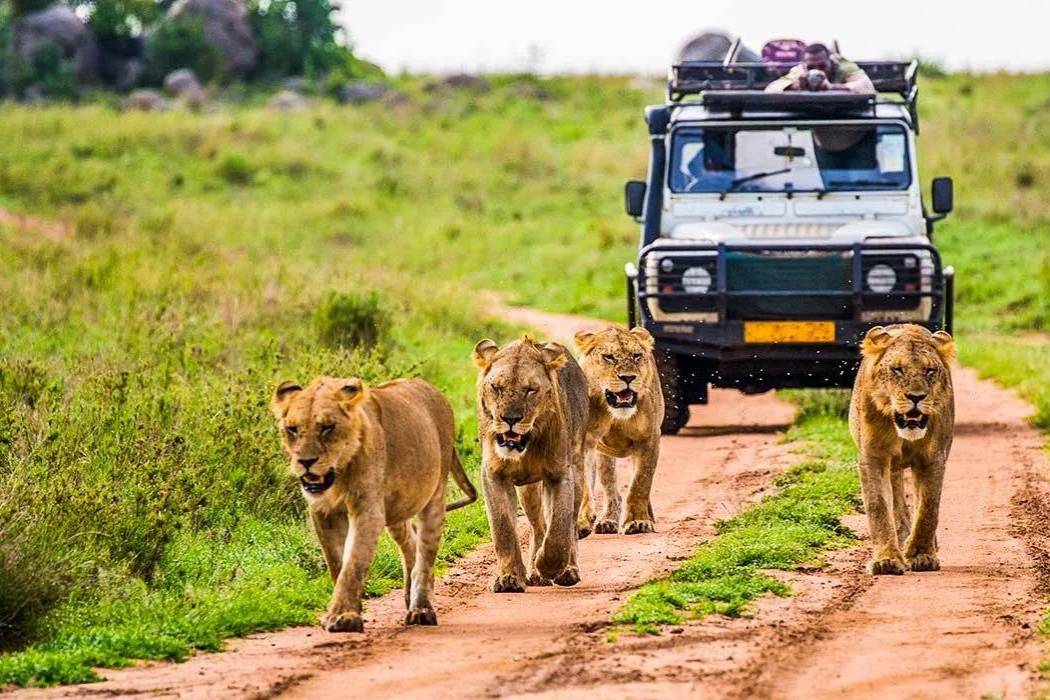When planning for a Kenya safari, it’s important to pack appropriately for the weather and activities you’ll be participating in. The following items are essential for a comfortable and enjoyable safari experience:
First and foremost, it’s important to pack comfortable, breathable clothing that will keep you cool in the heat of the day and warm during cooler evenings. T-shirts, lightweight pants or shorts, and a light jacket or sweater are all good options. It’s also recommended to pack sturdy, comfortable hiking shoes for any walking safaris or hikes you plan on taking. Due to the high elevation and proximity to the equator, the sun can be intense in Kenya. It’s important to pack sunscreen with a high SPF, sunglasses, a hat, and a lightweight scarf or bandana to protect your neck and face from the sun.
Insect repellent is also a must-have item for a safari in Kenya. Mosquitoes and other insects can be a nuisance, especially during the wetter seasons. It’s recommended to pack insect repellent containing DEET, as this is the most effective at keeping insects at bay. A camera is a crucial item for capturing memories of your safari. Pack a camera with extra batteries and memory cards so that you don’t miss any photo opportunities. Binoculars are also highly recommended for getting up close to wildlife and spotting birds in the trees.
Make sure to pack any prescription medications you need, as well as over-the-counter medications such as pain relievers, anti-diarrhea medication, and antihistamines for allergies. It’s also a good idea to bring a small first aid kit with you.
Travel Documents
When preparing for a trip to Kenya, it’s essential to ensure you have all the necessary travel documents to avoid any inconvenience at the airport or immigration. The first and most important travel document to carry is a valid passport, which should be valid for at least six months from the date of entry. Visitors also need a visa to enter Kenya, which can be obtained either online or on arrival at the airport.
Another essential document to carry is your flight ticket, which should be printed or available in electronic form. You may also need to provide proof of onward travel if you’re not planning to stay in Kenya indefinitely. It’s also advisable to have travel insurance that covers medical emergencies and repatriation, as well as any loss or damage to personal belongings.
If you’re planning to drive in Kenya, you’ll need an international driving permit and a valid driver’s license from your home country. You may also need to carry your vehicle registration documents and insurance, depending on the type of vehicle you’re driving.
It’s always a good idea to carry photocopies of your travel documents, including your passport and visa, in case of loss or theft. You should also keep a digital copy of your travel documents on your phone or email, which you can access from anywhere with an internet connection. By ensuring you have all the necessary travel documents before embarking on your trip to Kenya, you’ll have a smooth and stress-free experience, allowing you to focus on enjoying your safari and exploring this beautiful country.
What Should You Not Bring to Kenya?
While packing for a trip to Kenya, it’s important to know what items you should leave behind to avoid any legal or cultural issues. Here are some items that you should not bring to Kenya:
- Illegal drugs: The use and possession of drugs are illegal in Kenya, and offenders can face harsh penalties, including imprisonment.
- Game trophies: It’s illegal to export game trophies such as elephant tusks and rhino horns, regardless of whether they were obtained legally or illegally.
- Counterfeit goods: Kenya has strict laws against the importation and sale of counterfeit goods, including designer clothing and electronics.
- Plastic bags: Kenya has banned the use and importation of plastic bags to help protect the environment. Visitors should avoid bringing any plastic bags into the country.
- Offensive materials: Any material that can be deemed offensive, including religious or political literature, should be avoided.
- Weapons and ammunition: It’s illegal to carry firearms and ammunition in Kenya, except for licensed hunters and security personnel.
It’s important to note that the above list is not exhaustive, and visitors should always check the current regulations before packing for their trip to Kenya. By avoiding bringing prohibited items, you’ll ensure a smooth and hassle-free trip while respecting the laws and culture of the country.
Finally, be sure to bring cash for small purchases, tips, and souvenirs. While credit cards are accepted in some areas, cash is always a safe option.
Remember to pack light and be mindful of luggage restrictions if you’re traveling by small plane to your safari destination. Check with our travel experts or lodge of choice for any specific recommendations or requirements for your safari, and enjoy your adventure in Kenya!
